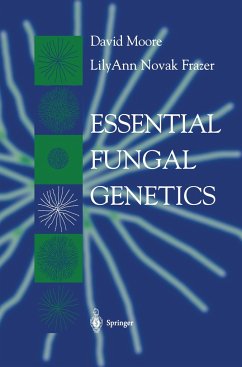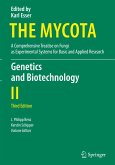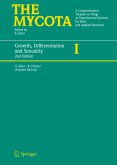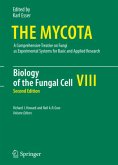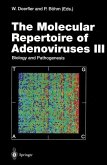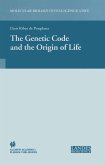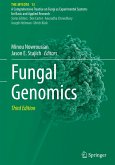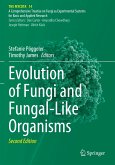Most genetics textbooks deal adequately with plant and animal genetics, but tend to neglect fungi except for two areas. Firstly, the ascus segregations which, in the 1960s, contributed so much to developing an understanding of the mechanism of recombination and secondly, the contribution that work on yeast (as a model eukaryote) is currently making to understanding cell cycle control and its genetic regulation. Consequently, most introductory genetics texts will leave the reader/student with the impression that fungi are of use when peculiarities of their structure or life style suit them to particular experimental approaches, but are not worth mentioning otherwise. The authors have produced a book that will compensate for this imbalance. This book discusses the genetics of fungi, or mycology, in a way that is attractive and challenging, succinct yet comprehensive, sensitive to commercial and applied aspects, yet also theoretical, dealing with their genetics from molecules toindividuals to population.
This short text will be an ideal supplement to the established basic textbooks in genetics or can be used as the sole text for an advanced course devoted to fungal genetics.
This short text will be an ideal supplement to the established basic textbooks in genetics or can be used as the sole text for an advanced course devoted to fungal genetics.
"The authors have undoubtedly succeeded in their main aim of producing a readable yet challenging text which will appeal to keen undergraduates and their teachers alike. In particular, the inclusion of both classical and molecular techniques together makes for a satisfying read. Each chapter is organized logically and carefully leads the reader through, at times, complex ideas. ...a valuable addition to the literature which I will certainly recommend as a reference source for our final year undergraduates studying fungal genetics." Mycological Research
"...this is a valuable contribution on these fascinating and important organisms." Microbiology Today
"This book will serve as a comprehensive resource for courses in fungal genetics and will be useful for upper-division undergraduate and graduate students as well as professionals in molecular fungal biology, mycology,
plant pathology, microbiology, medical mycology and other disciplines in which fungi have an important role." -CHOICE
"...this is a valuable contribution on these fascinating and important organisms." Microbiology Today
"This book will serve as a comprehensive resource for courses in fungal genetics and will be useful for upper-division undergraduate and graduate students as well as professionals in molecular fungal biology, mycology,
plant pathology, microbiology, medical mycology and other disciplines in which fungi have an important role." -CHOICE
The authors have undoubtedly succeeded in their main aim of producing a readable yet challenging text which will appeal to keen undergraduates and their teachers alike. In particular, the inclusion of both classical and molecular techniques together makes for a satisfying read. Each chapter is organized logically and carefully leads the reader through, at times, complex ideas. ...a valuable addition to the literature which I will certainly recommend as a reference source for our final year undergraduates studying fungal genetics. Mycological Research "...this is a valuable contribution on these fascinating and important organisms." Microbiology Today.

